|
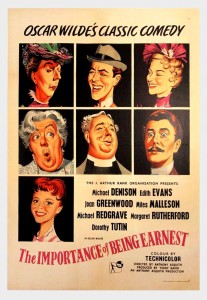
Synopsis:
A wealthy bachelor (Michael Redgrave) going by the name of “Ernest” hopes to marry the daughter (Joan Greenwood) of arrogant Lady Bracknell (Edith Evans); meanwhile, Evans’ nephew (Michael Denison) — also posing as “Ernest” — falls in love with Redgrave’s beautiful 18-year-old ward (Dorothy Tutin). Troubles arise when Evans expresses concern over Redgrave’s dubious heritage, and both Greenwood and Tutin learn that their fiances are actually named something other than Ernest.
|
|
Genres, Themes, Actors, and Directors:
- Class Relations
- Joan Greenwood Films
- Margaret Rutherford Films
- Michael Redgrave Films
- Mistaken or Hidden Identities
- Play Adaptation
- Romantic Comedy
Review:
Oscar Wilde’s final play — the initial production of which was infamously sabotaged by allegations of his homosexual “indiscretions” and his subsequent jailing — has been adapted for the big screen numerous times (including a 2002 version co-starring Reese Witherspoon), but this earlier adaptation by director Anthony Asquith is often cited as the most faithful and definitive version. Indeed, many critics complain that the film sticks too closely to its theatrical origins — a charge frequently leveled at Asquith, whose directorial style in general was more straightforward than stylistically creative. For my money, Wilde’s play is enjoyable enough to stand just fine on its own, and a more straightforward adaptation like this allows one simply to bask in its infinitely witty juices. Wilde truly was a genius at humorously skewering class relations, and his play was (thankfully) modified only slightly for the screen by Asquith, who refused to accept any credit for the work.
Although John Gielgud remains perhaps the most famous actor to perform as Jack/Ernest (he turned down an opportunity to star in this adaptation), Michael Redgrave is a fine — if perhaps slightly overage — replacement, and Michael Denison is perfectly cast as his roguish friend Algernon. Dorothy Tutin — who remained primarily a stage actress throughout her career — made her screen debut as Cecily, and is suitably youthful and naive in this critical role; meanwhile, Joan Greenwood purrs her way through a supporting performance as Redgrave’s betrothed, and Margaret Rutherford steals the few scenes she’s in as Tutin’s German tutor. The film’s most famous performance, however, is given by Dame Edith Evans, who played the role of Lady Bracknell for several decades on stage, and whose incredulous intonation here of the line, “A handbag?!” remains oft-cited.
Note: Watch for some delightfully florid hats worn by the various women in the cast; the Technicolor cinematography brings out their hues quite nicely.
Redeeming Qualities and Moments:
Must See?
Yes, as the “definitive” cinematic adaptation of Wilde’s classic play.
Categories
Links:
|

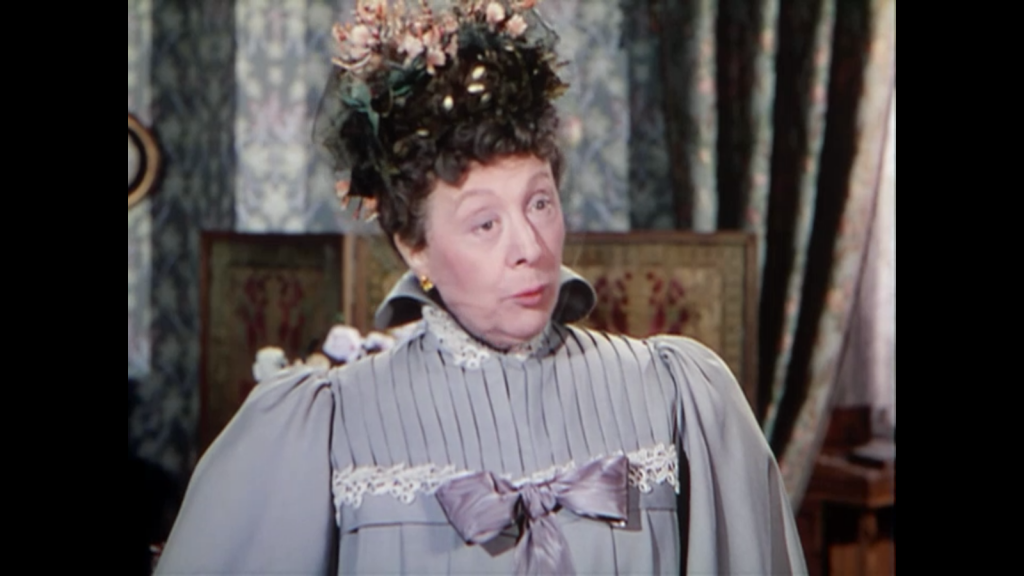

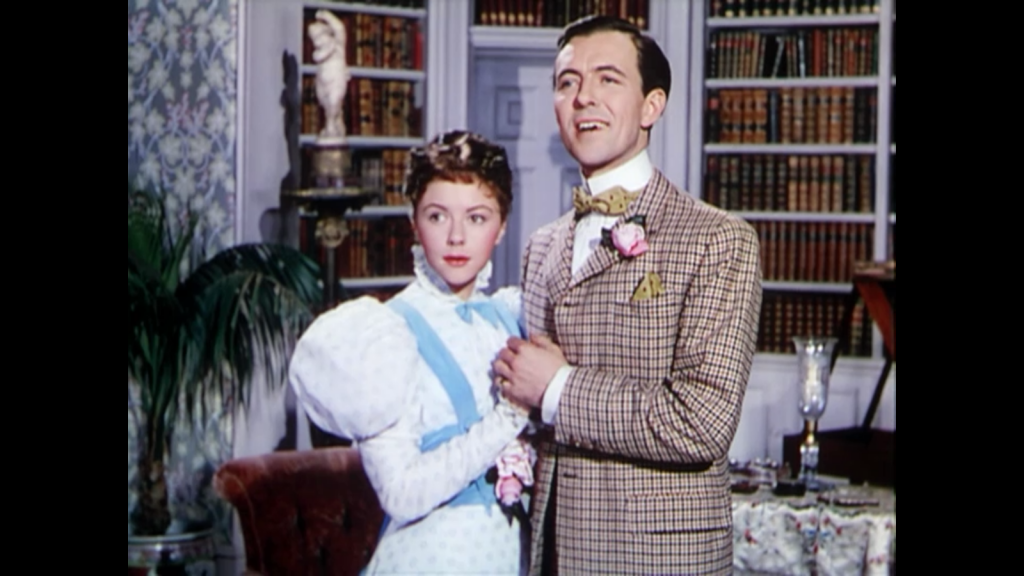
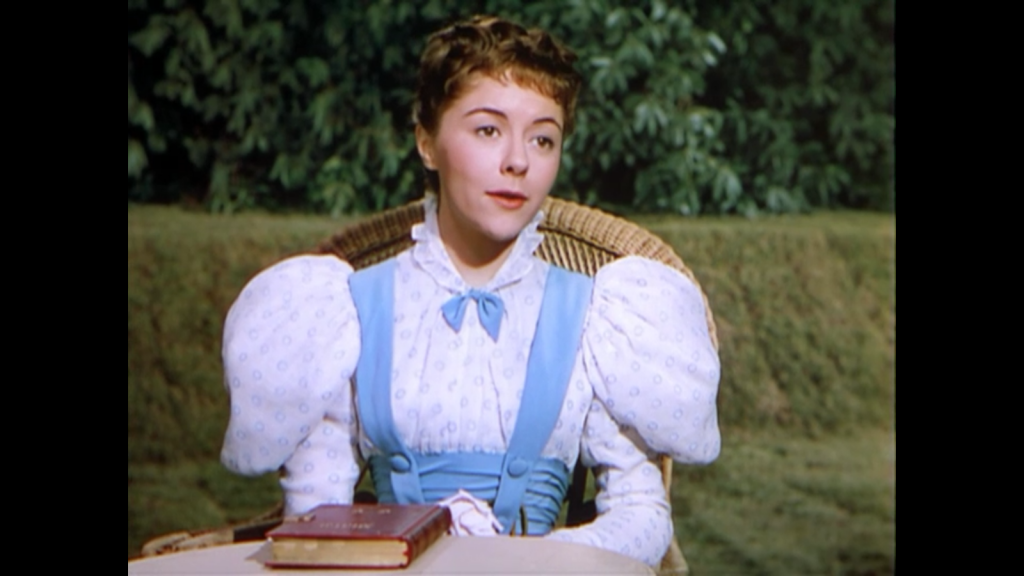
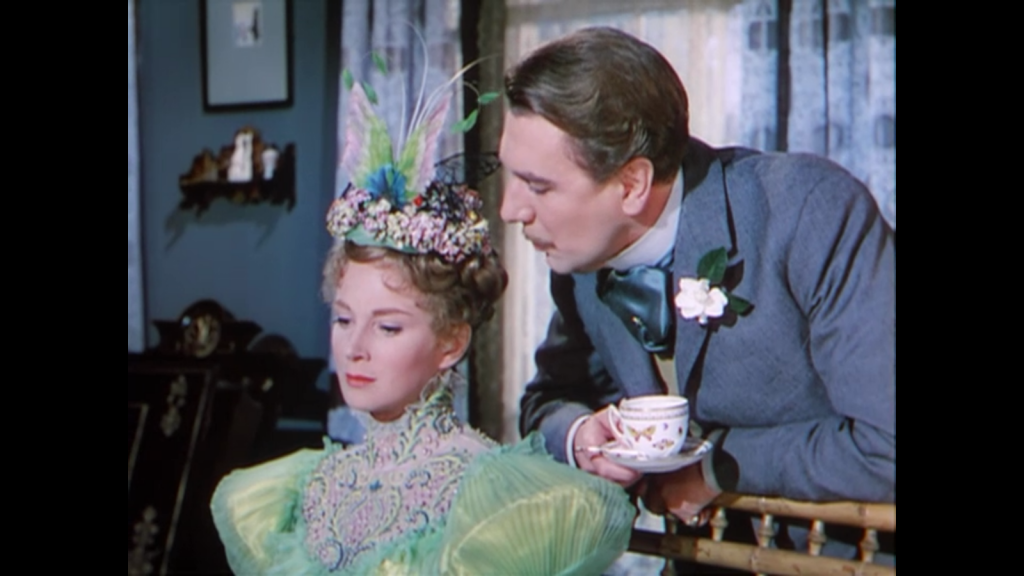
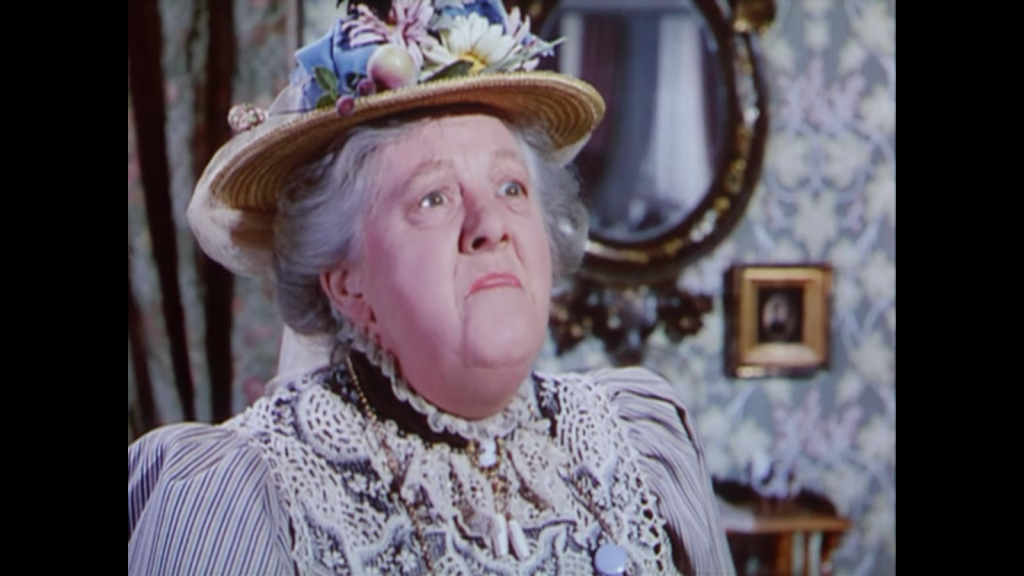
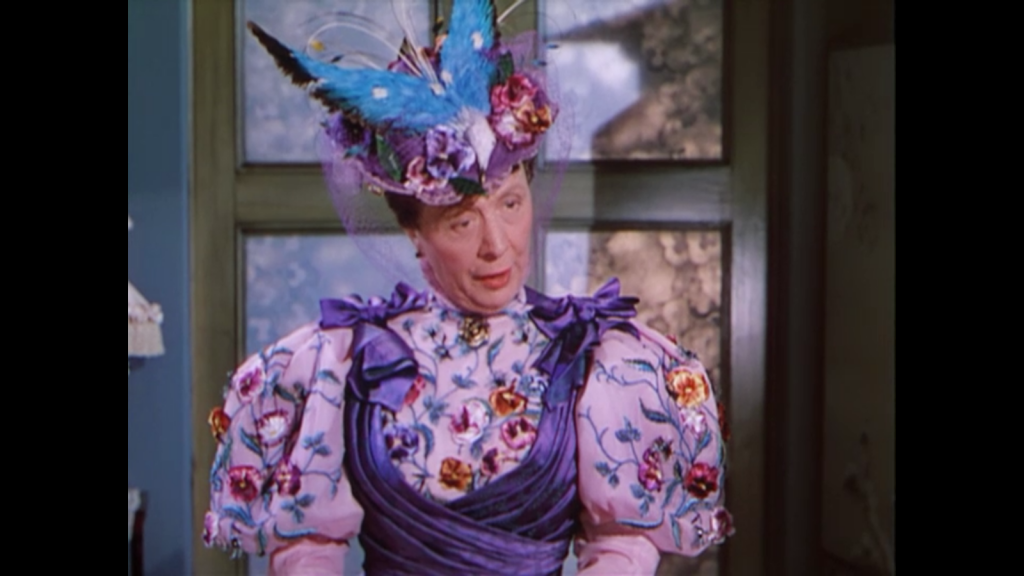
One thought on “Importance of Being Earnest, The (1952)”
A no-brainer must – and a delight that rewards fully on repeat viewings.
W.H. Auden may have said it best when he referred to Wilde’s masterpiece as “a pure verbal opera”. It is indeed – simply one of the best comedies ever written, certainly one of the wittiest. One gets enjoyment from the music of the language (as wonderfully ornate as the marvelously detailed costumes) as well as the incisiveness of the wit. I have seen this film version a number of times and it always holds up exceedingly well – no small feat for a work originally seen on the stage in 1895!
This film rather solidifies my own thoughts on comedy in general – and explains why, in comedy, I find language much more potent than mere buffoonery. Aside from the fact that ‘comedy’ which comes strictly from the school of “It’s always funnier when someone gets hurt.” just – by itself – gets old. Blending physical comedy with the power of clever words (or clever characterization, as personified by Buster Keaton) will always be more effective (i.e., the modern comedy of Leslie Nielsen) but comedy without pratfall strings remains the biggest challenge. (I could be wrong but, in ‘TIOBE’, I don’t think anyone even touches each other, really, at any point.) Little in comedy will ever be as rich as the things characters actually say…especially when such things are combined and entwined with profound truths about the human condition. Wilde’s script does runneth over with those.
On YouTube, one can find clips of interviews with Brian Bedford, who recently directed a successful revival of the play (and also starred as Lady Bracknell). Bedford makes the point that material such as Wilde at his best can still be very tricky stuff to pull off. He states that he had seen a number of unsuccessful productions of the play, in which the actors seemed to think that all that was necessary was a sort-of spouting of Wilde’s lines for the full effect. Bedford goes on to say that making a success of ‘TIOBE’ rests with approaching characterization with total conviction, living and breathing as these people, as if somewhat unaware that one is playing comedy at all.
That’s exactly what the marvelous ensemble in this film version does. It’s why they work seamlessly together. Suffice it to say, no one in the cast can really be singled out as out-performing anyone else; this is delicious teamwork.
The film opens and closes with a brief ‘reminder’ that we are in a theater, watching a production of the play – and not a film. Smart choice. As is the move to make judicious cuts to the text. As a result, some verbal ornament may be lost but what emerges is a successful rendering on screen of something very much intended for the stage (if it is to be seen to its fullest advantage). What the text loses in the transfer, it gains in power as a film which retains all from the play which will make for a compact, faithful film.
Simply put, both a play and film to be treasured and adored.